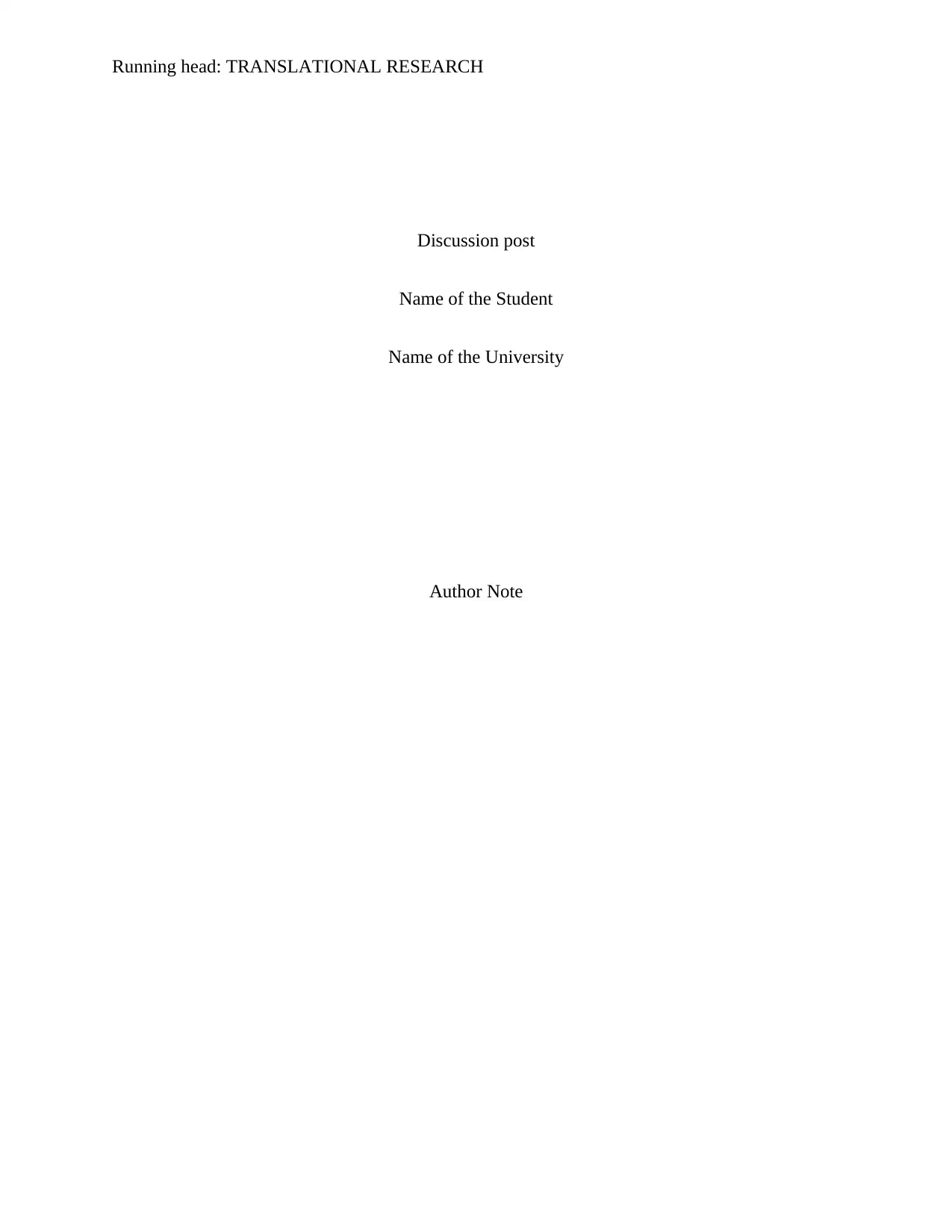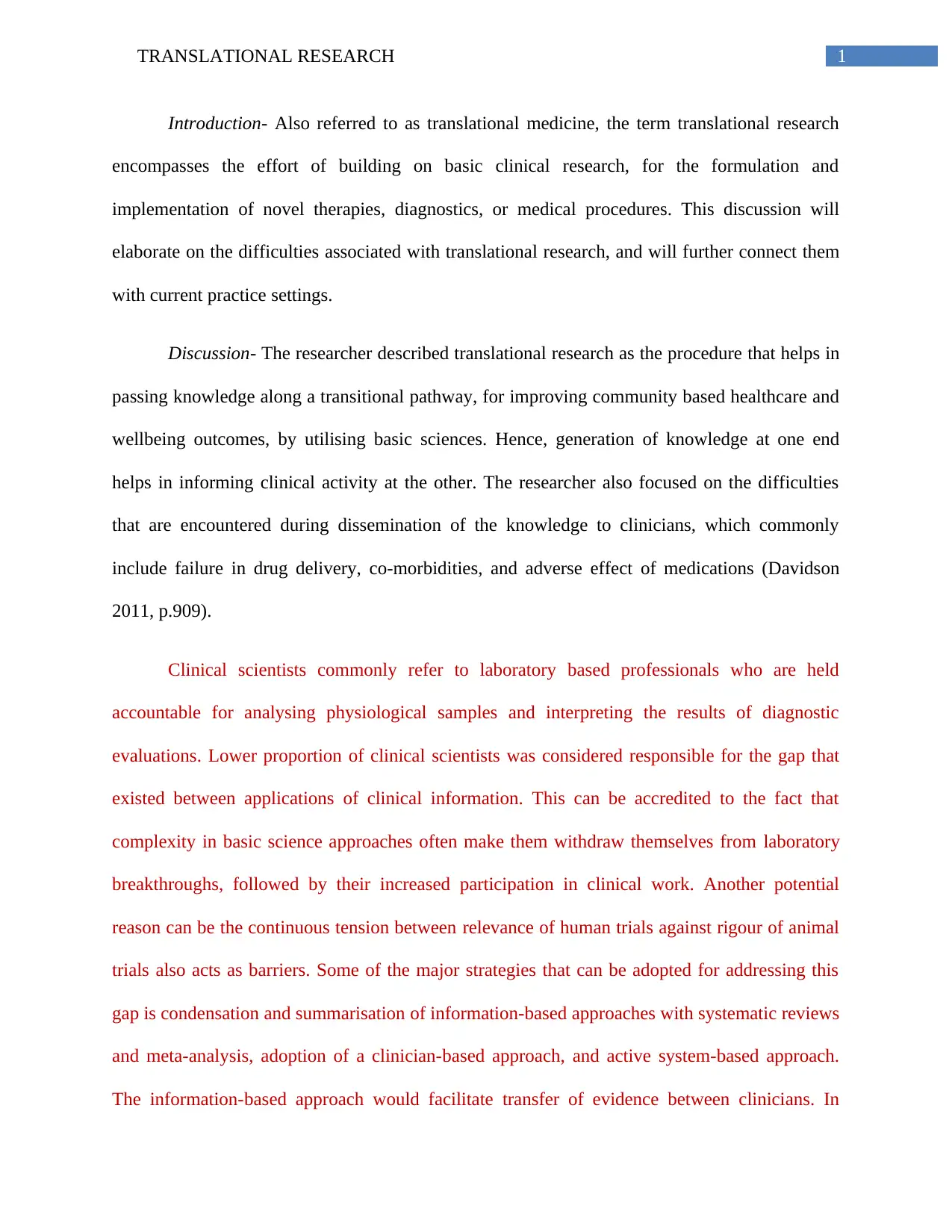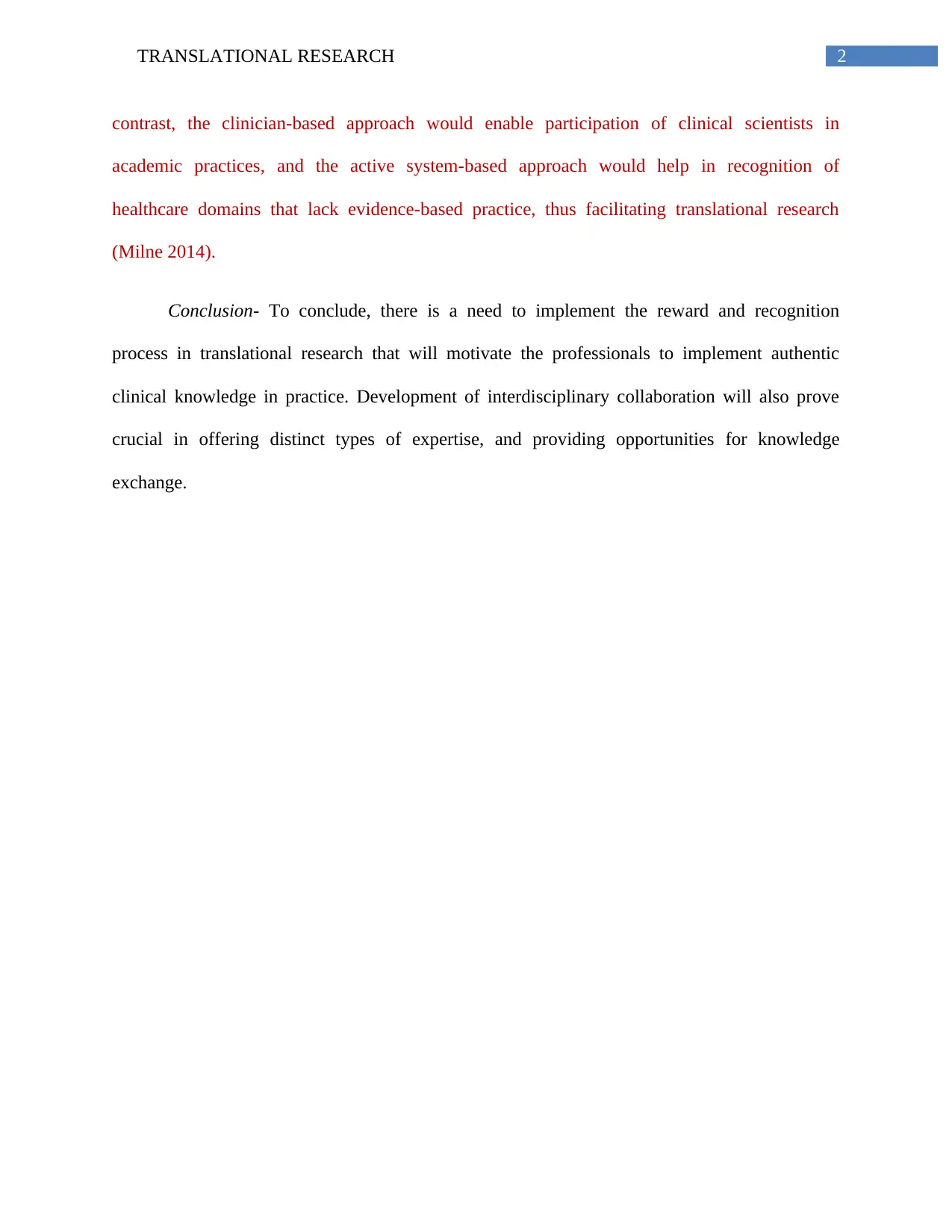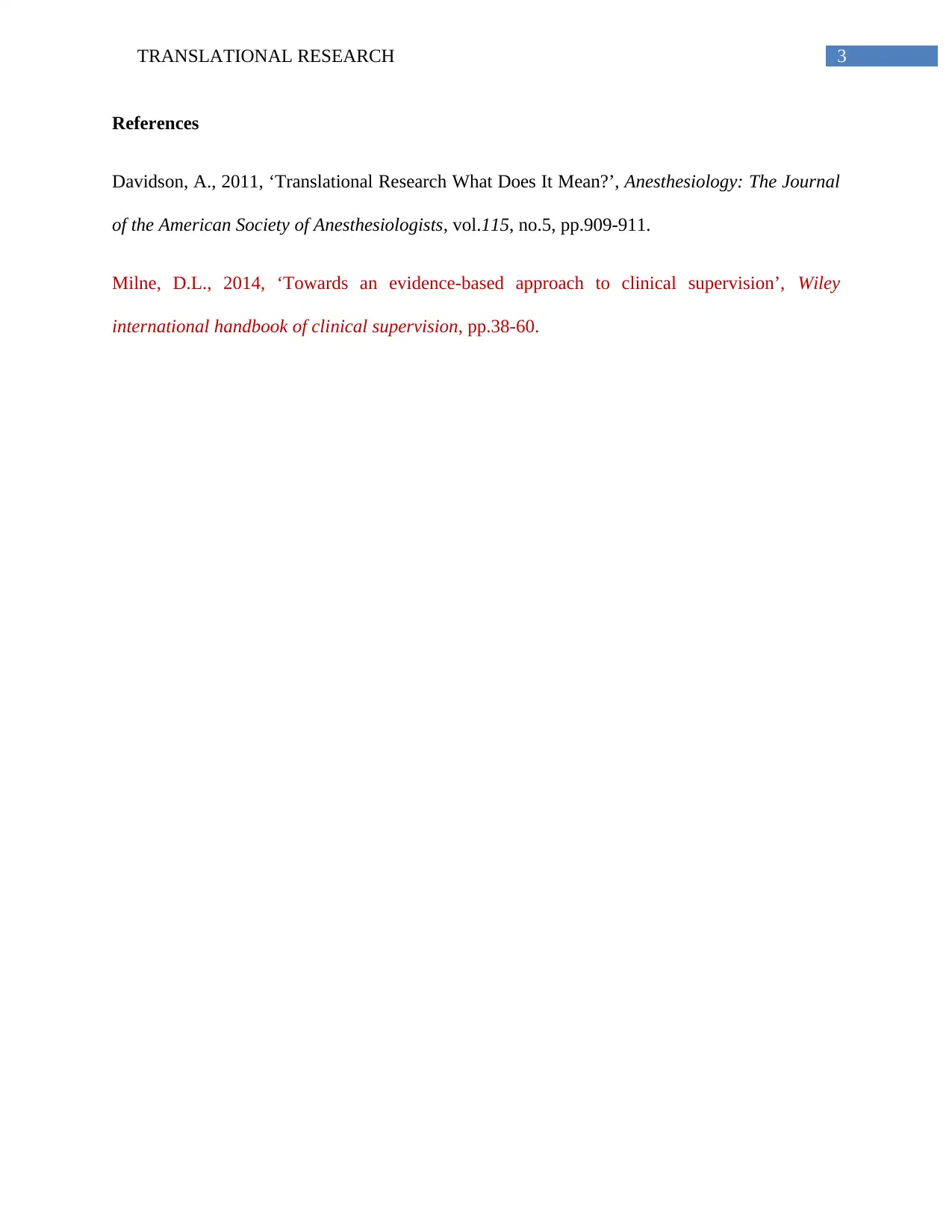Discussion on Translational Research: Challenges and Solutions
VerifiedAdded on 2023/04/17
|4
|415
|58
Discussion Board Post
AI Summary
This discussion post delves into the complexities of translational research, focusing on the difficulties encountered in bridging the gap between basic clinical research and the implementation of novel therapies and diagnostics. It highlights issues such as failures in drug delivery, co-morbidities, and adverse medication effects, as well as the divide between laboratory breakthroughs and clinical application due to the complexity of basic science. The post suggests strategies to address these challenges, including information-based approaches, clinician-based engagement, and active system-based improvements. It concludes by emphasizing the need for reward systems, interdisciplinary collaboration, and knowledge exchange to motivate professionals and enhance the translation of clinical knowledge into practice.
1 out of 4











![[object Object]](/_next/static/media/star-bottom.7253800d.svg)